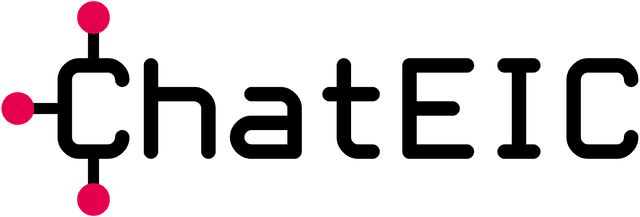
How to Select an EU Grant Financing Program such as the EIC Accelerator (SME Instrument) - Part 3
This article is a continuation of Part 2 and describes a list of considerations to be made by startups and Small- and Medium-Sized Enterprises (SME) that seek to raise grant financing from the European Union (EU). One of these options is the EIC Accelerator blended financing (formerly SME Instrument Phase 2, grant and equity) by the European Innovation Council (EIC) and European Commission (EC) which is highly suitable for innovative companies and has a strong support network of professional writers and expert consultancies (contact a professional writer here).
8. Country Restrictions
Which countries can apply?
Country restrictions have to be considered whenever they could be applicable. As an example, there are funding programs by the EU where only a certain country can apply while others are open to non-EU countries (i.e. Tunesia, Israel, Ukraine) such as most Horizon 2020 and Horizon Europe programs (read: Countries for the EIC Accelerator).
There can also be specific restrictions imposed due to special circumstances such as Brexit. Since the United Kingdoms (UK) participation in Horizon Europe was unclear throughout 2020 and 2019, UK applicants were only allowed to apply for grant financing under the EIC Accelerator but not blended financing since the EIC did not want to take equity stakes in foreign entities. Such potential issues have to be assessed on a case-by-case basis.
9. Submission Process
How is the submission process for the grant applicants?
The requirements for grant applications can vary greatly and have to be assessed based on their submission types, evaluation process and document requirements. Such variations have to be explored for each case but the general scopes for grant application can be summarised as follows:
Submission type: Online submissions (i.e. document uploads) are possible in many cases but the submission to local contact points or federal government institutes can be required as well. The EIC Accelerator uses the Funding &Tenders Portal for fully digitized submissions (read: Financing Timeline).
Evaluation process: The evaluation process will vary depending on the type of evaluators, their numbers, backgrounds and general focus. The EIC Accelerator uses a remote pool of evaluators via the European Agency for SME's (EASME) and in-person juries for the pitch interviews (read: Interview).
Document types: The document types that are requested under a grant, as defined by the official proposal template, will vary but a normal PDF document like a business plan or a research plan are a must in almost all cases. The EIC Accelerator additionally requests financial spreadsheets, a short summary, a video pitch and a pitch deck (read: 2021 Application Proces).
10. Local Support Networks
What local support is available for companies?
Support on a national level is well organized in the EU due to an abundance of SME contact points in key European areas. These can provide a strong support network and can provide resources that help in future applications. Such help might not be available for all grant opportunities especially if the applicant does not classify as an SME which needs to be assessed beforehand.
11. Available Consultancies
Are there many consultancies specialising in the filed?
Lastly, it is useful to assess the number of consultancies or experienced writers that are available for a specific grant so that each prospect applicant is able to have a variety of options to choose from when hiring such supporters. It can also be beneficial to assess if the consultancies are working with multiple grants so that a more suitable option can be chosen instead of the original one in case of a rejection or if a more thorough assessment warrants such a transition.
For the EIC Accelerator, there are a variety of available consultancies to choose from with varying business models and industry focus (read: Preparing an Application). To reach out to a professional writer or consultant, please use the following contact form.
Summary
When choosing an EU financing program, the following aspects should be considered:
- Budget: How much is the total available budget and the financing per application?
- Covered Costs: Are all costs covered or only a percentage?
- Competitiveness: How high is the success rate?
- Thematic Focus: What specific conditions do projects need to fulfil (i.e. innovation, Technology Readiness Levels, industry)?
- Local Alternatives: Are there national funding projects available with easier accessibility?
- Number of Submissions: How often can an applicant submit an application?
- Single Applicant or Consortium: Is it a single-applicant program or exclusively for consortia?
- Country Restrictions: What restrictions are imposed on applicants when it comes to their country of origin?
- Submission Process: Is an online submission possible or a complex federal process?
- Local Support Networks: Are there support networks available or resources for applicants (i.e. templates, proposal examples, annotated guidelines)?
- Available Consultancies: Are expert consultancies and professional grant writers available for hire?
These tips are not only useful for European startups, professional writers, consultants and Small and Medium-Sized Enterprises (SME) but are generally recommended when writing a business plan or investor documents.
Deadlines: Post-Horizon 2020, the EIC Accelerator accepts Step 1 submissions now while the deadlines for the full applications (Step 2) under Horizon Europe are listed below. The Step 1 applications must be submitted weeks in advance of Step 2. The next EIC Accelerator cut-off for Step 2 (full proposal) can be found here. After Brexit, UK companies can still apply to the EIC Accelerator under Horizon Europe albeit with non-dilutive grant applications only - thereby excluding equity-financing. Switzerland has resumed its participation in Horizon Europe and is now eligible for the EIC Accelerator.
EIC Accelerator Step 1 Deadline 2025
Contact: You can reach out to us via this contact form to work with a professional consultant.
AI Grant Writer: ChatEIC is a fully automated EIC Accelerator grant proposal writer: Get it here.
EIC Accelerator: EIC Accelerator delivers flexible funding options including blended finance (€2.5M grant + €0.5M-€10M equity), grant-only (up to €2.5M), or equity-only arrangements for scale-up and market deployment of breakthrough innovations. The initiative targets SMEs, start-ups, and small mid-caps with up to 499 employees. Technology areas include Biotech, Engineering, Artificial Intelligence, Energy, Quantum, Aerospace, Advanced Materials, and Semiconductors. Get Started
EIC Pathfinder: EIC Pathfinder delivers up to €3 million for Open calls and up to €4 million for Challenge-based calls to support early-stage research and development with proof-of-principle validation. The initiative requires research consortia with a minimum of 3 partners from 3 different countries, including universities, research organizations, and SMEs. Primary technology focus areas include Health/Medical, Quantum Technologies, AI, Environmental/Energy, and Advanced Materials. Get Started
EIC Transition: EIC Transition delivers up to €2.5 million in funding to overcome the 'valley of death' gap between laboratory research and market deployment, emphasizing technology maturation and validation. The initiative supports single legal entities or small consortia of 2-5 partners including SMEs, start-ups, spin-offs, and research organizations. Key technology domains include Health/Medical Technologies, Green/Environmental Innovation, Digital/Microelectronics, Quantum Technologies, and AI/Robotics. Get Started
EIC STEP Scale-Up: EIC STEP Scale-Up delivers significant equity investments of €10-30 million for established deep-tech companies prepared for hyper-growth and large-scale expansion. The initiative targets SMEs or small mid-caps with up to 499 employees who have obtained pre-commitment from qualified investors. Primary focus areas include Digital & Deep Tech (Semiconductors, AI, Quantum), Clean Technologies for Net-Zero objectives, and Biotechnologies. Get Started
EIC Pre-Accelerator: EIC Pre-Accelerator represents a pilot initiative delivering €300,000-€500,000 in funding for early-stage deep-tech development and preparation for the EIC Accelerator program. This program is exclusively accessible to single SMEs or small mid-caps from 'Widening countries' to foster regional innovation development. The initiative encompasses deep-tech innovations across physical, biological, and digital domains. Get Started
EIC Advanced Innovation Challenges: EIC Advanced Innovation Challenges represents a new pilot initiative delivering €300,000 (Stage 1) and up to €2.5 million (Stage 2) for breakthrough deep-tech innovations through ARPA-style staged funding mechanisms with integrated demand-side engagement. This initiative targets single entities or small consortia (2-3 partners) including SMEs, start-ups, and research organizations. Primary focus areas include Physical AI for autonomous robotics applications and New Approach Methodologies (NAMs) for animal-free biomedical testing, with TRL 4 entry requirements and demonstrated end-user commitment. Get Started
Eureka Network: The Eureka Network delivers various international collaborative R&D initiatives such as Network Projects, Clusters, Eurostars, Globalstars, and Innowwide, providing funding from €50K to €6.75M per project based on the specific initiative. This network emphasizes market-driven innovation and deep-tech advancement across multiple technology sectors including ICT/Digital, Industrial/Manufacturing, Bio/Medical Technologies, Energy/Environment, Quantum, AI, and Circular Economy. Eligible participants include SMEs, large enterprises, research organizations, universities, and startups, with Eurostars particularly focused on R&D-performing SMEs. Get Started
Eurostars: Eurostars represents a joint EU-Eureka initiative delivering €50K-€500K for international R&D collaboration specifically led by SMEs. The program adopts a bottom-up approach, accepting projects from all technology fields without predefined thematic restrictions. R&D-performing SMEs must lead the consortium and demonstrate significant R&D activities. Get Started
Innovation Partnership: Innovation Partnership enables collaborative innovation between public and private sectors with typical funding of €1-5 million per project. The initiative supports cross-sectoral strategic technologies through public-private partnerships and consortia. Projects concentrate on addressing societal challenges through collaborative innovation approaches. Get Started
Innovation Fund: The EU Innovation Fund delivers substantial funding of €7.5 million to €300 million for large-scale demonstration of innovative low-carbon technologies. The initiative targets clean energy, carbon capture, renewable energy, and energy storage technologies to accelerate the transition to a low-carbon economy. Eligible participants include large companies, consortia, and public entities capable of implementing large-scale demonstration projects. Get Started
Innovate UK: Innovate UK delivers various programs with funding ranging from £25K to £10M depending on the specific initiative, supporting business-led innovation, collaborative R&D, and knowledge transfer. The organization funds projects across all sectors with particular emphasis on emerging technologies and supports UK-based businesses, research organizations, and universities. Programs are designed to drive economic growth through innovation and technology commercialization. Get Started
Industrial Partnership: Industrial Partnership delivers €2-10 million in funding for industrial research and innovation partnerships focusing on manufacturing, industrial technologies, and digital transformation. The initiative supports industrial consortia and research organizations in developing collaborative solutions for industrial challenges. Projects aim to strengthen European industrial competitiveness through strategic partnerships. Get Started
LIFE Programme: The LIFE Programme delivers €1-10 million in funding for environmental protection, climate action, and nature conservation projects across the European Union. The initiative supports environmental technologies, climate adaptation strategies, and biodiversity conservation initiatives. Eligible participants include public authorities, private companies, NGOs, and research institutions working on environmental and climate challenges. Get Started
Neotec: Neotec represents a Spanish initiative delivering €250K-€1M in funding for technology-based business creation and development, supporting the growth of innovative Spanish SMEs and start-ups. The program covers all technology sectors and aims to strengthen Spain's technology ecosystem. Funding is specifically targeted at Spanish technology-based SMEs and start-ups to enhance their competitiveness and market presence. Get Started
Thematic Priorities: EU Thematic Priorities encompass various programs aligned with EU strategic priorities including green transition, digital transformation, health, and security initiatives. Funding amounts vary based on the specific program and call requirements, with projects designed to address key European challenges. Applicant eligibility varies by specific program and call, with different requirements for different thematic areas. Get Started
Any more questions? View the Frequently Asked Questions (FAQ) section.
Want to see all articles? They can be found here.
For Updates: Join this Newsletter!
